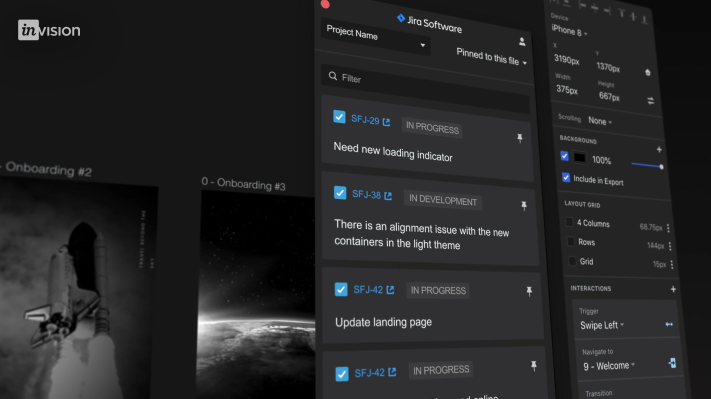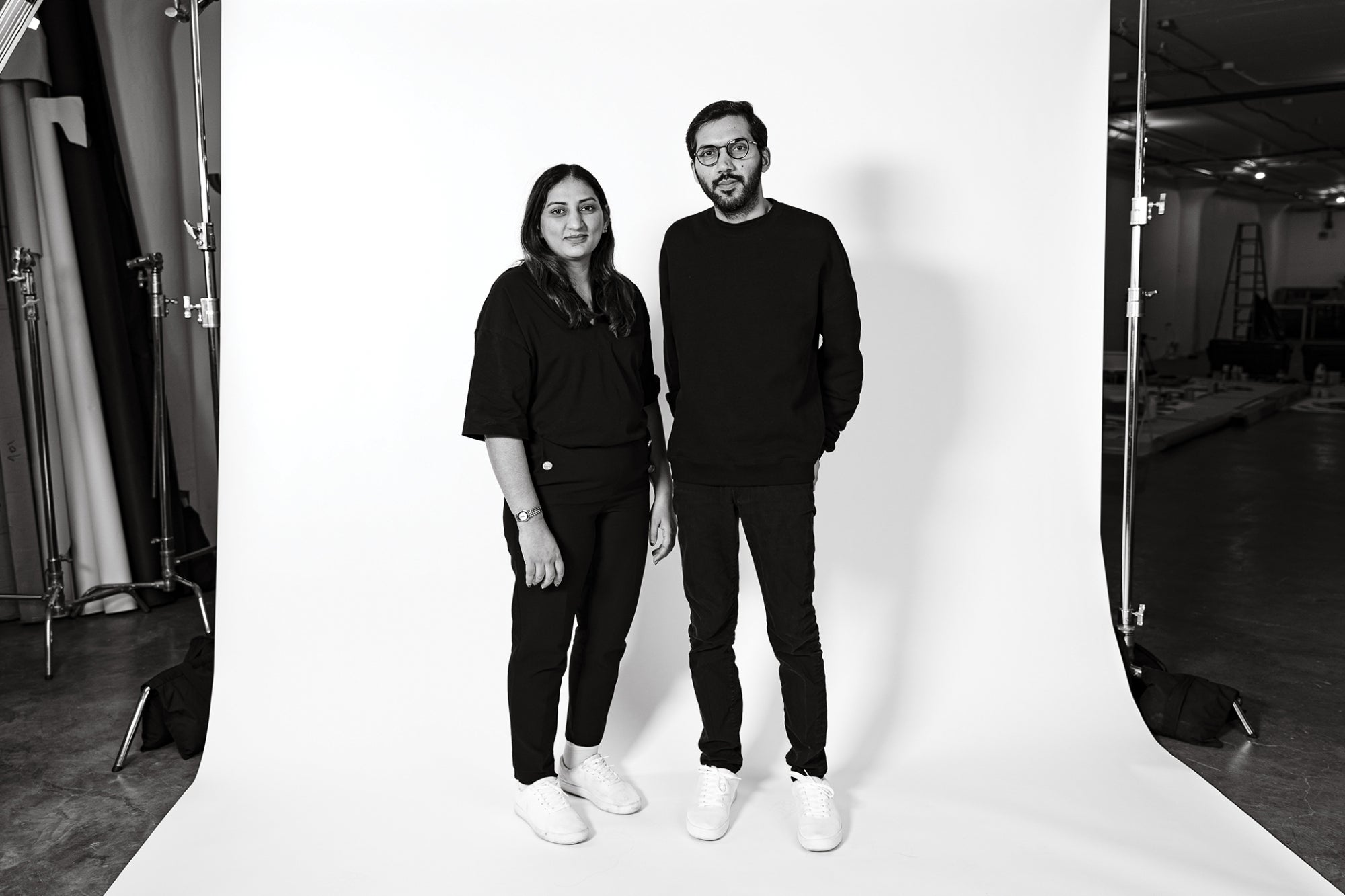Today InVision announced even deeper integrations with Jira, letting users embed actual InVision prototypes right within a Jira ticket. The company also announced the Jira app for InVision Studio, letting designers in Studio see interactive Jira tickets in real time.
InVision has already had lighter integrations with Atlassian products, including Jira, Confluence and Trello. It’s also worth noting that Atlassian participated in InVision’s $115 million Series F funding round.
The partnership makes sense. Atlassian provides a parallel product to InVision, except instead of serving designers, Atlassian serves engineers.
But it brings up an interesting challenge for InVision, last valued at $1.9 billion. The company went from creating its own market with a paid prototyping and collaboration tool to competing with giants and startups alike as it introduced new products.
InVision Studio, for instance, is meant to compete with the likes of Adobe XD, Sketch, and Figma, among others.
At the same time, InVision’s strategy has always been to become a connective tissue for the broader design landscape. CEO Clark Valberg has said in the past that he sees InVision becoming the Salesforce of the design world, with a broad array of partnerships and integrations across the industry to handle each, nuanced fraction of the process in a single, fluid place.
“Up until now we’ve been a fairly horizontal player,” said VP of Product Mike Davidson. “We created the market for prototyping. There was no paid market for a prototyping tool until InVision came along. Now that you see us provide a more vertical stack of tools, we don’t want to lose the great thing we’ve built with the InVision Prototyping tool. It’s been more popular than we could have ever imagined.”
Davidson added that InVision now serves 100 of the Fortune 100 companies.
And since its launch in 2011, InVision has maintained that original strategic course of staying open, particularly with Atlassian. But InVision isn’t just friendly with Atlassian. The company also introduced an App Store and Asset Store in InVision Studio (partnerships include Slack, Dribbble, and Getty), with plans to launch a developer API so anyone can build apps for InVision Studio. Plus, InVision has made a handful of acquisitions, and launched the Design Forward Fund, which allocates $5 million toward investing in design startups.
VP of Partnerships and Community Mike Davidson believes that balancing this open garden philosophy with the desire to provide the very best products across the entire process (automatically putting InVision in competition with other design startups) is one of the company’s greatest challenges.
“We want to provide a first-cclass experience from beginning to end but we also want to provide a system that’s open enough where you can use your tool of choice for any one of the particular functions,” said Davidson. “It’s a difficult balance. We want to allow for designers and developers to choose which tools they use for whatever job they’re trying to do, but we also want to be the best choice for each one of those functions.”










